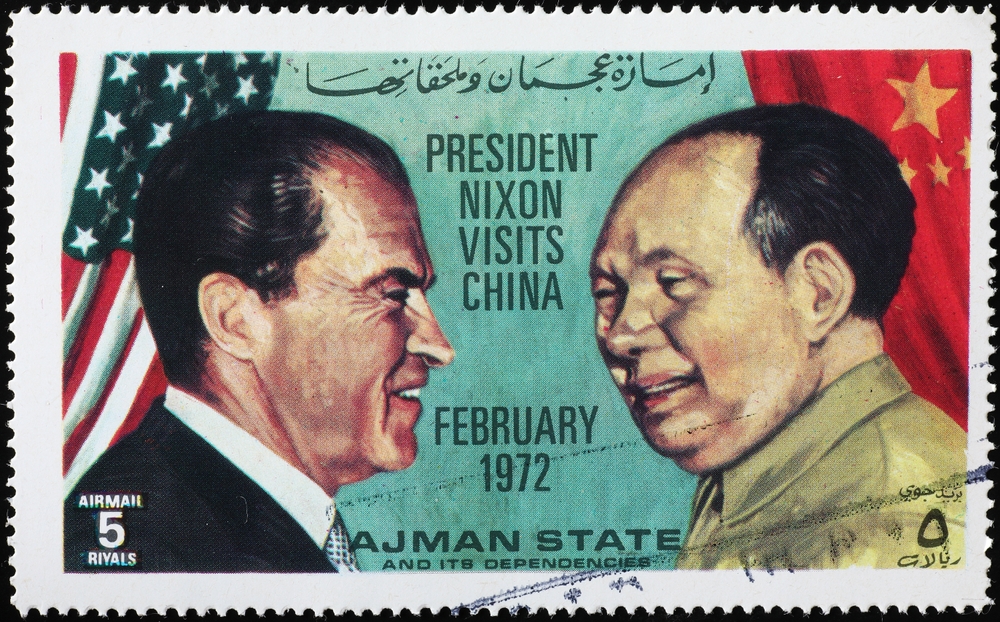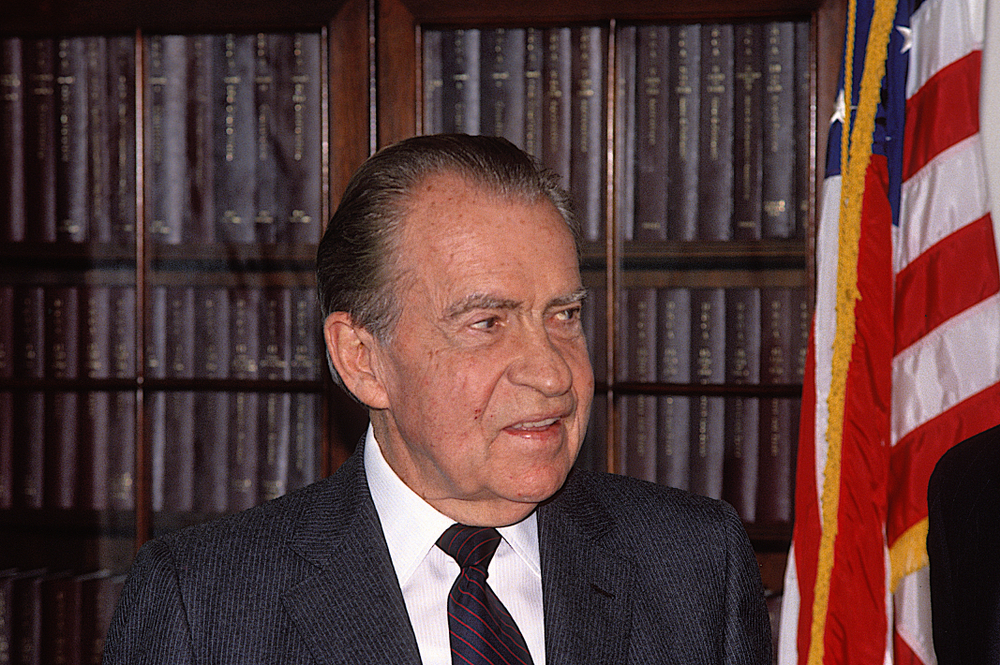Fifty years ago, the G. Gordon Liddy and James McCord Jr. cases, both the helping hands of President Richard Nixon, initiated the entire media Tsunami that went down in history as the “Watergate scandal.”
FBI officer Liddy and the CIA’s McCord were both convicted of conspiracy, burglary, and wiretapping of the Democratic National Committee at the Watergate hotel in Washington. They were both part of the group of seven men that broke into the Democrats’ electoral offices, in an attempt to gain fresh information about Nixon’s rival, George McGovern.
Former White House legal advisor John Dean declared that after Watergate, the news media have never been the same. As it turned out, he helped cover up the scandal, then became a key witness in the inquiries that followed.
As he admitted, “in the bigger picture that what happened forever changed the coverage of a President of the USA by the media. Before Watergate, presidents had the benefit of the doubt. Post-Watergate era, presidents weren’t given the benefit of the doubt as they were before.”

A crisis of trust
Before Watergate, the presidency was seen with some sort of deference and reverence. There was an assumption that the office, and the one holding it, deserved the benefit of the doubt. However, as soon as the tapes were revealed and it was well-known that Nixon knew about the break-in and actively worked to obstruct justice, the assumption rapidly collapsed.
Nixon’s resignation in August 1974, probably the first and only in U.S. history, marked quite a fundamental shift in how Americans perceive their leaders. It completely shattered the perception that the presidency was above political corruption or any legal accountability.
In fact, a Gallup poll conducted shortly after Nixon’s resignation proved that only 36% of Americans trusted the federal government to do what’s right “most of the time,” which is a dramatic drop from other decades. That erosion of trust still persists, and many scholars trace its origins all the way back to Watergate.
The rise of investigative journalism
Watergate definitely revolutionized the way we perceive journalism. Washington Post reporters Bob Woodward and Carl Bernstein both rapidly became national icons for their reporting skills, supported by a secret informant known as “Deep Throat” (which was later revealed to be FBI Associate Director Mark Felt).
Their work uncovered a web of corruption, which led from the burglars all the way to the Oval Office. This era also gave birth to modern investigative journalism, which is a new breed of reporters focused not just on relaying information, but also on exposing abuse of power.
Newsrooms all over America began investing more in long-form investigations, mainly emboldened by the idea that journalism can bring down even the strongest political figures.
Right after Watergate, the press rapidly became more adversarial. Presidents weren’t exempt from suspicion. Every misstep was analyzed, scrutinized, and reported. Some stated this was only part of the natural evolution of democracy, while others still think it completely ushered in an era of hyper-partisanship and scandal-chasing.
Legal and institutional reforms
Right after Watergate, Congress rapidly moved to pass yet another series of reforms meant to prevent similar abuses of power. Among some of the most significant ones are:
- The War Powers Act (1973): Even if it was passed during Nixon’s term and before his resignation, it was still part of a broader distrust of executive overreach. It also limited the president’s capacity to send troops into conflict without any Congressional approval.
- The Ethics in Government Act (1978): This law was the first one to establish obligatory financial disclosures for public officials, and also the first to create the Office of Government Ethics.
- Creation of the Independent Counsel: A major result of Watergate, this legal mechanism was meant to allow independent prosecutors to efficiently investigate high-ranking officials without any conflict of interest.
All these reforms were mainly attempts to reassert Congressional oversight, curb executive power, and restore some kind of public confidence. Even if many of these laws have been challenged or watered down over time, they still reflect the profound impact Watergate had on American governance.

The Shadow of Watergate in Modern Politics
Since Watergate, every single scandal has been used as a measuring unit against it. Iran-Contra, Whitewater, Clinton’s Impeachment, and, of course, the Trump administration’s investigation all inherited the “-gate” suffix as a shorthand for political scandals.
This only proves that Watergate not only changed the presidency once, but it kept on reshaping the political narrative and the media ecosystem. Whenever a president is accused of something wrong, journalists and lawmakers instinctively look back to the Watergate playbook: they follow the money, demand the tapes, and subpoena the helpers.
Nowadays, presidents are more insulated by legal teams, media handlers, and partisan echo chambers. However, they’re also more vulnerable to public scrutiny, more so than ever, in fact. In many different ways, the modern presidency is now defined by what happened then as much as by the Constitution itself.
Nixon’s legacy, and America’s lesson
Richard Nixon’s political abilities were impressive, especially since he won reelection in 1972 in one of the most notable landslides in American history. However, less than two years later, he would leave office in disgrace. Up until this day, his legacy is still deeply divisive, as some remember his achievements in foreign policy, like opening China, while others somehow define him only by Watergate.
But the true and most important lesson of Watergate isn’t about Nixon. It’s about the fragility of democratic institutions when they’re left unchecked. It’s about power, and how, when it’s abused, it corrodes the foundations it is meant to uphold. Watergate taught Americans that no one, not even the President, is above the law (on paper.)
A turning point with lingering echoes
Watergate completely changed the presidency by altering how it is perceived, how it operates, and how it is held accountable. It also introduced a brand new level of skepticism, giving birth to modern investigative journalism and inspiring many reforms that were meant to prevent executive overreach.
Even if the political landscape kept on evolving, the questions that were raised by Watergate, implying ethics, truth, and the limits of power, are still urgent and unresolved.
Since now we face new challenges in the digital age, whether it’s cyber threats, disinformation, and political polarization, Watergate can serve as nothing but a reminder that democracy can be both resilient and vulnerable. And that, at the end of the day, a vigilant public is by far the strongest defense against any kind of abuse of power.
We can even go on to say that the long-term impact of Watergate is still unfolding. With each administration, there are new ethical and legal challenges, and the public continues to measure modern leaders against such standards.
The scandal completely reshaped the presidency, as well as the public’s role in demanding transparency and accountability. It also taught us that vigilance is mandatory in a proper democracy. Citizens, journalists, and lawmakers still try to grapple with the risky balance between executive authority and democratic oversight, an ongoing conversation that started earnestly with Watergate and one that’s far from being over.
Hopefully, you enjoyed reading this piece! If that’s so, we highly recommend checking out other articles on America Politics News Feed. Let us know what you think in the comment section!
